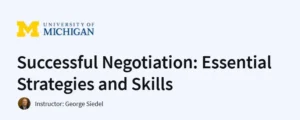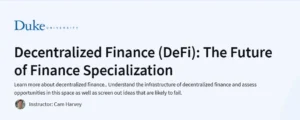What you will learn in Behavioral Finance Course
Understand the classical economic model of consumer choice and its assumptions.
Explore how real-world financial decisions often deviate from rational models due to cognitive biases.
Learn about various biases such as loss aversion, overconfidence, and mental accounting.
Apply behavioral finance concepts to improve personal and professional financial decision-making.
Program Overview
Module 1: Introduction to Behavioral Finance
⏳ 1 hour
- Overview of classical economics and rational decision-making assumptions.
- Introduction to the field of behavioral finance and its relevance in understanding financial behavior.
Module 2: Cognitive Biases in Financial Decision-Making
⏳ 2 hours
- Detailed exploration of cognitive biases such as loss aversion, overconfidence, and mental accounting.
- Real-world case studies illustrating the effects of these biases on financial decisions.
Module 3: Applications of Behavioral Finance
⏳ 2 hours
- Learn how behavioral finance concepts can be applied to investment strategies, retirement planning, and consumer behavior.
- Strategies for mitigating the effects of biases in financial decision-making.
Get certificate
Job Outlook
Enhances understanding of financial decision-making processes, beneficial for careers in finance, investment banking, and financial planning.
Provides insights into consumer behavior, aiding in roles related to marketing and product development.
Completing this course can bolster qualifications for roles requiring strong analytical and decision-making skills.
Specification: Behavioral Finance Course
|
FAQs
- Helps identify personal biases such as overconfidence, loss aversion, and herd behavior that often lead to poor investment decisions.
- Teaches how emotions, like fear or greed, influence choices during market volatility or economic uncertainty.
- Provides actionable strategies to minimize impulsive decisions and stick to long-term investment plans.
- Encourages disciplined, analytical decision-making by recognizing psychological triggers and patterns that can affect portfolio performance.
- Helps develop a mindset to review past mistakes and adjust future strategies based on behavioral insights.
- Includes detailed case studies of historical market events where cognitive biases led to significant investment errors.
- Highlights both individual investor mistakes and organizational decision-making flaws, offering a well-rounded perspective.
- Demonstrates how psychological factors like overconfidence, anchoring, and confirmation bias impact stock, bond, and alternative investment choices.
- Encourages learners to analyze personal and professional decision patterns to avoid repeating common errors.
- Provides a bridge between theory and practice, enabling learners to implement behavioral insights in everyday financial decisions.
- Enhances critical thinking and decision-making abilities for careers in investment banking, portfolio management, financial advisory, and consulting.
- Improves the ability to anticipate client behavior, market trends, and potential pitfalls in investment strategies.
- Demonstrates expertise in understanding psychological factors that influence financial markets, which is highly valued by employers.
- Can be leveraged in risk management, corporate finance, and strategic business planning roles.
- Equips learners with practical tools to evaluate and improve the decision-making processes of both individuals and organizations.
- Basic finance knowledge may help, but it is not mandatory to grasp the core principles of behavioral finance.
- Emphasizes psychological concepts and real-world behavior rather than complex calculations or formulas.
- Teaches learners to analyze how biases, emotions, and social influences shape financial decisions in personal and professional contexts.
- Encourages a conceptual understanding of investment behavior, enabling students to make informed decisions even with limited technical expertise.
- Provides practical insights that can be applied immediately to personal finance, investing, and business decision-making.
- Applicable to decision-making in marketing, management, HR, and organizational strategy by helping predict how people respond to incentives and risks.
- Offers insights into consumer behavior, employee engagement, and leadership effectiveness.
- Improves negotiation skills, risk assessment, and strategic planning by factoring in psychological biases and social influences.
- Helps design policies, products, and incentives that account for human tendencies and behavioral patterns.
- Equips professionals with tools to optimize business processes, enhance team performance, and achieve better outcomes by understanding human decision-making at both individual and organizational levels.





